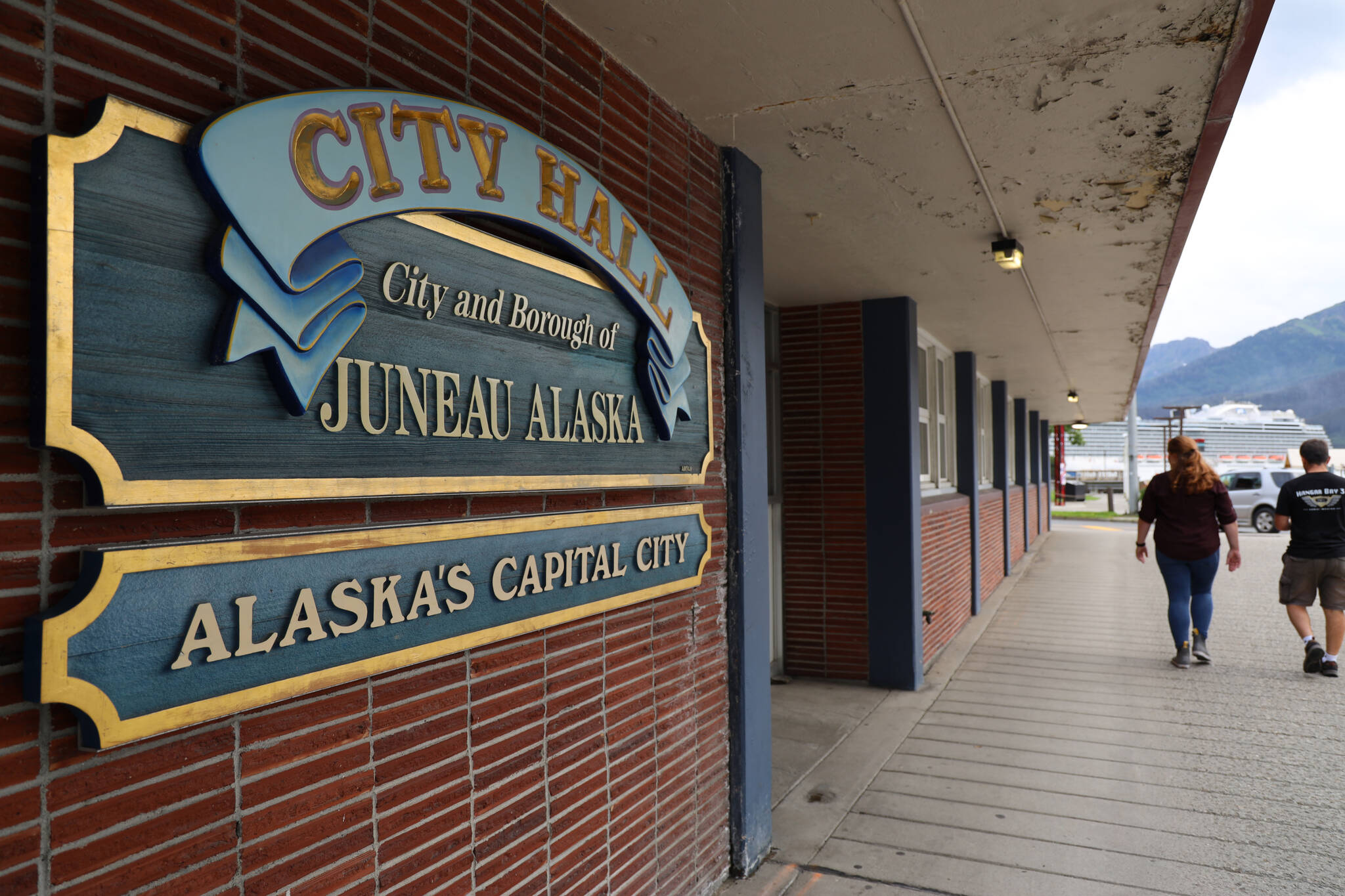Developing new multifamily housing in Juneau potentially just got a whole lot cheaper.
After a drawn-out debate at Monday night’s City and Borough of Juneau Assembly meeting, members OK’d an ordinance to offer a property tax break to new eligible housing developments of four or more units on one lot that will be in effect boroughwide.
Thanks to the ordinance, the city will now only require new developers to pay property taxes on the mandatory school contribution of 2.65 mills instead of the 10.66 mills, and the tax break will last 12 years once adopted by a developer within the 10-year span that the ordinance is in place.
For months the city has pushed for this ordinance in the hope that it will encourage the construction of more high-density housing in Juneau, a housing model that Juneau generally lacks. The new ordinance is an extension of the already-in-place downtown abatement zone ordinance passed in March, which aimed to encourage downtown housing development in a short period.
However, since passing, no developers have taken advantage of it, though Mayor Beth Weldon noted that the developers leading the Gastineau Lodges project, a potential 72-unit apartment building in downtown Juneau, have expressed interest in taking advantage of the property tax abatement.
The bulk of the debate by Assembly members about the ordinance was not necessarily about the actual property tax abatement itself, but rather the more than decade-long period it would expand over.
Dave Hanna, a resident off of Back Loop Road, expressed concerns during the public hearing of the ordinance and argued that the proposed 12-year time period was too long and urged the Assembly to change it to five.
Wayne Coogan, a resident from the Auke Bay area, echoed what Hanna said and insisted that changing the sunset period to close in five years would be less costly for the city, and also force developers to hone down on getting their developments off the ground and built in Juneau.
“If your project can’t get over the hump in five years, maybe it’s just not good of a project,” Hanna said.
Hanna said he also urged the Assembly to consider the “unintended consequences” of the ordinance if passed and said the tax abatement would bring a serious shortfall of revenue and give new developers a disproportionate financial advantage over already existing developments.
“This in my mind creates a very unfair situation,” Hanna said. “It creates winners and losers when you give a significant offset and is a punishment to people who invested without it.”
Their remarks did affect certain members of the Assembly who proposed two amendments to the ordinance to cut the sunset period down nearly half the amount of years originally proposed, however, both failed. A request by Assembly member Christine Woll to send the ordinance to the Committee as a Whole was also shot down.
“The Assembly really loves to talk things to death, but I think it’s time that we need to move forward on this,” said Assembly member Carole Triem, who objected to both amendments and request to move the ordinance to the COW. “We’ve done the work already, and we need to move forward.”
Assembly members Alicia Hughes-Skandjis and Wade Bryson shared similar sentiments as Triem and argued the necessity of taking action to encourage more housing in Juneau should take precedence over the need to “perfect” the ordinance.
“I think we need to be really careful to not let perfection be the enemy of the good — I think we’ve done our due diligence,” Hughes-Skandjis said. “I feel really strongly that the right thing to do is to act on this tonight.”
In the end, all members gave the OK to the original ordinance.
• Contact reporter Clarise Larson at clarise.larson@juneauempire.com or (651)-528-1807. Follow her on Twitter at @clariselarson.

